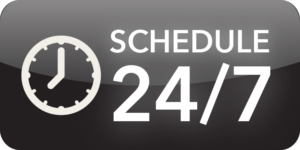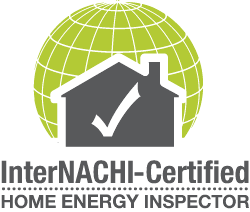Mostly, people don’t bother thinking about their sewer lines until there’s a problem. Well, obviously, it’s difficult to keep an eye on them during your busy schedule. But you will still have to put an eye (or your nose) out for sewer problems. Before they turn into an unstoppable nuisance.
Constant backups, slow drains, gurgling sounds, and foul odors. If these issues sound familiar to you, don’t hold on to sewer line inspections. Because these are the alarming red flags that your sewer lines need professional attention.
Being proactive with sewer line inspections will save you emergencies and hefty expenses. And it will ultimately protect both your home’s marketability and your family’s health. Blessed Assurance Home Inspection guides you throughout the sewer line inspections – the process and the right time to conduct them.
But to start with, let’s make one thing very clear:
Why Sewer Line Inspection Is Important
Sewer line inspections are as important as inspecting any other element of your home. Conducting a timely sewer line inspection will save your home’s marketability from depreciation. It also ensures your daily life doesn’t get disrupted every now and then due to sewer obstacles.
Let’s look into the details of why sewer line inspection is important.
Early On Prevention
When you get regular sewer line inspections, you can find issues early on. Before they become big problems. For instance, you can easily repair any small cracks or intruding roots. This will help you prevent eventual pipe collapses or full blockages down the road.
This is why being proactive and considering timely inspections protect your home, health, and wallet.
Detection Of Problems
Sewer cameras can identify issues that you wouldn’t detect on your own. It’s not your mistake, as no one would like to look into sewer lines. But someone has to before it becomes the bane of your life.
The professional inspectors will detect sewer problems. This may include everything from minor issues, such as small hairline cracks, rust, or mineral deposits, to major backups or clogs. Sewer inspectors are trained specialists, as they know exactly what to look for during sewer line inspection.
This will help you catch problems that you could hardly detect on your own – until you experience a backup.
Efficient Repairs
You don’t need to tear up your entire yard to repair the sewer lines. The credit goes to well-organized inspections. Once the inspectors spot the exact sewer line problems, they suggest efficient and early repairs.
Take this example.
Instead of replacing the entire sewer lines, you can fix the specific damaged sections through pipe patching or isolation repairs. It’s like a surgical approach where you can get rid of sewer problems without costing a fortune.
Documentation For Homeowners
A sewer line inspection reports the very precise condition of your sewer pipes. They document a comprehensive inspection report to give homeowners or buyers complete insights. The inspection process keeps it as a record of your sewer system.
They use a professional camera to take images or videos. This will reveal all the flaws, build-up scum, wear and tear, and damage. This document also contains the inspectors’ findings, other techniques used, and their expert suggestions.
Cost-Effective Solutions
When you consider regular sewer line inspections, you can save huge amounts of money everywhere. You can avoid hefty expenses over repairs, backup cleanups, and emergency pipe excavations.
Instead of spending less but repetitive money over minor fixes, why not consider a one-time expense of sewer line inspection? This will also keep replacement requirements away.
Avoid Untimely Replacement
Did you know?
Your sewer line can last 40 to 50 years or more before needing full replacement. The only condition is proper maintenance and care.
That’s possible with regular sewer line inspections. Which can dramatically extend your pipes’ life and highlight any existing or potential problems. And avoid repair or replacement needs. This means you will not have to spend on premature line replacements that break the bank.
What Methods Are Used In A Sewer Line Inspection
Although the sewer line inspectors don’t have a magic wand to solve those of your sewer problems that are out of your sight. But they use specialized and advanced methods to reveal what’s going on under the road. Let’s look into these methods:
Video Inspection
The most common method of sewer line inspection is sending a camera – down the main line. The inspectors use special sewer cameras on flexible cables. This way, they can visually inspect the condition of the interior of your pipes.
These cameras capture high-resolution video footage that the inspectors can watch live or recorded. The video inspections help you identify any cracks, clogs, root intrusions, or other issues.
Pipe and Leak Locating
Sewer line inspectors use acoustic testing to locate pipe defects or leaks. For this purpose, they place a sensor inside the pipes. Then, sound waves are used to detect cracks or collapsing areas underground.
This will reveal all those flaws that are missed during camera inspections. Leak locating will pinpoint areas where storm or groundwater enters into cracked sanitary pipes.
Smoke Testing
It’s a process of pumping non-toxic smoke into sewer pipes and vents. The inspectors will trace the smoke’s path to identify leaks and improperly connected lines. They will notify the homeowners in advance before entering smoke into plumbing vents during the inspection process.
Although it’s a messy method, it can identify major issues that other methods might miss. This includes cracks, leaks, cross connections, and more.
Signs That You Need A Sewer Line Inspectio
Before you suddenly need a whole replacement for your sewer pipes or lines. Their problems leave visible signs that indicate they need repairs. You must know these red flags so you can schedule your sewer line inspection day accordingly. These signs or red flags include:
- Slow Draining
- Foul Odors
- Frequent Backups
- Drain Clogs
- Gurgling Noises
- Puddles In The Yard
What To Do Next?
If you notice any persistent signs of sewer line problems, the next step is to call a professional sewer line inspector. They will inspect thoroughly to identify where the exact problem lies and what potential problems you could face. They will also suggest proper methods to address the issues.
We suggest instead of directly making a plumber do the fixes and spend a fortune there. Make sure to inspect your sewer system thoroughly and get expert advice on what to do. Scroll through our blog section to learn more about inspections.









